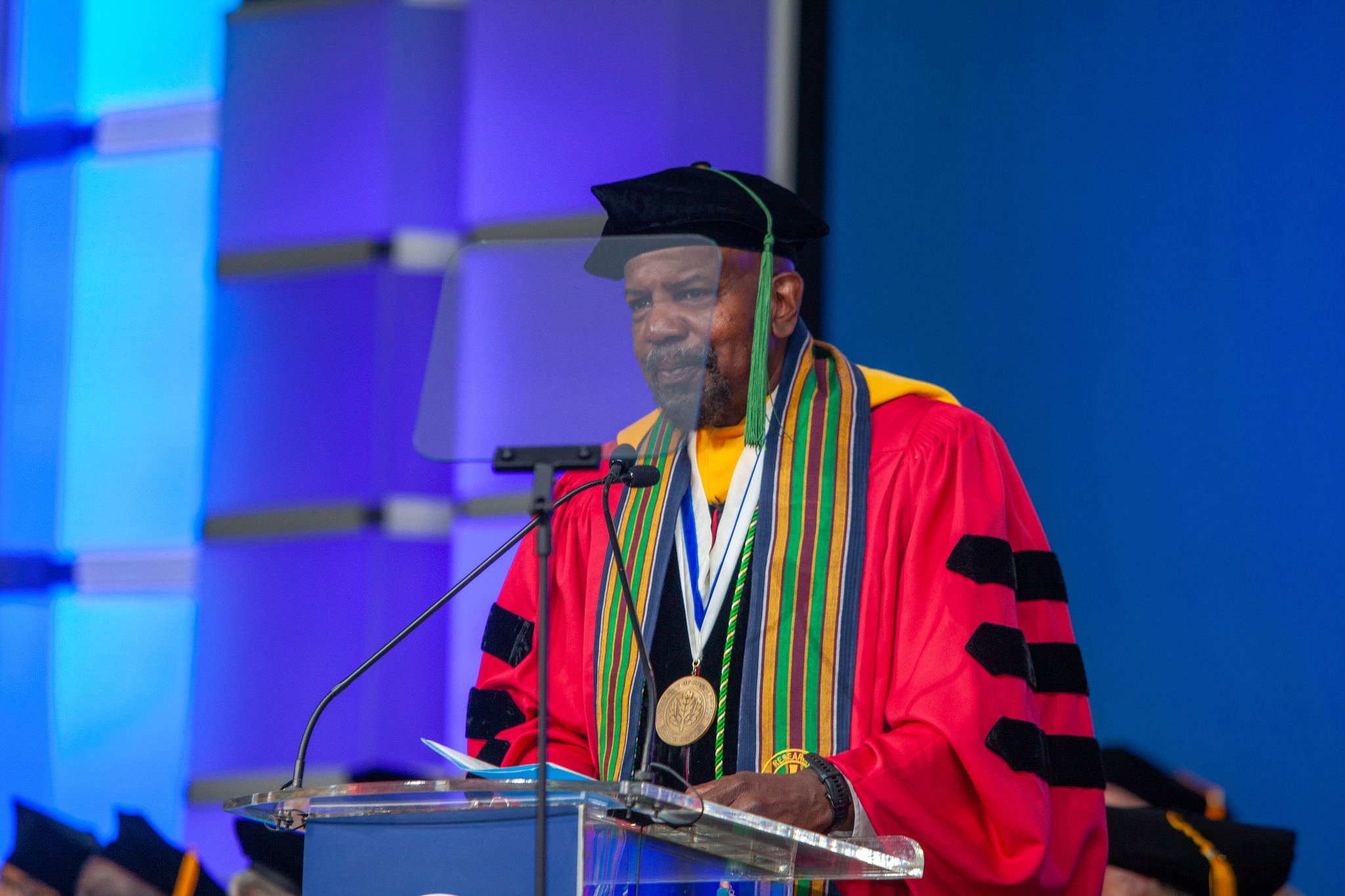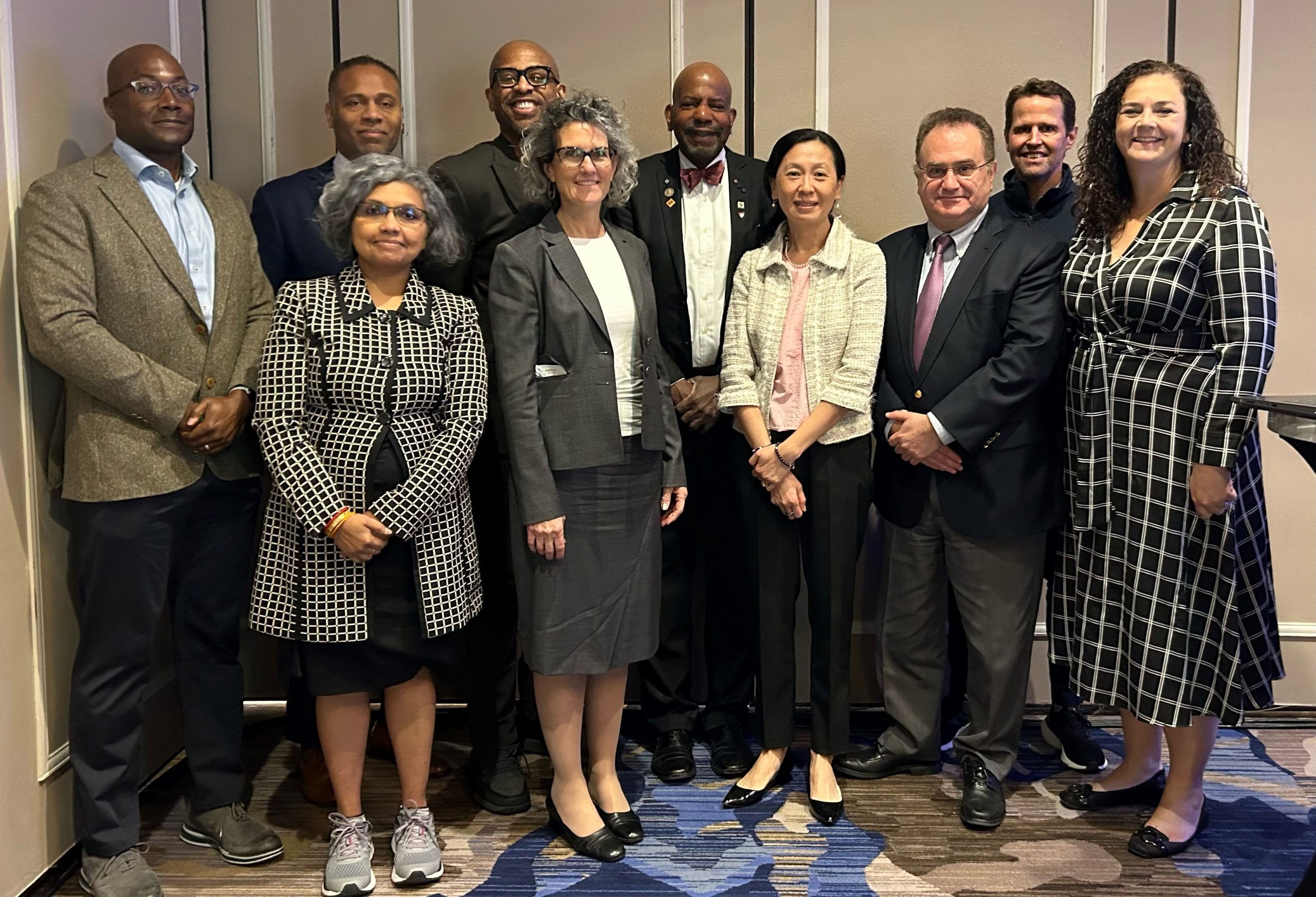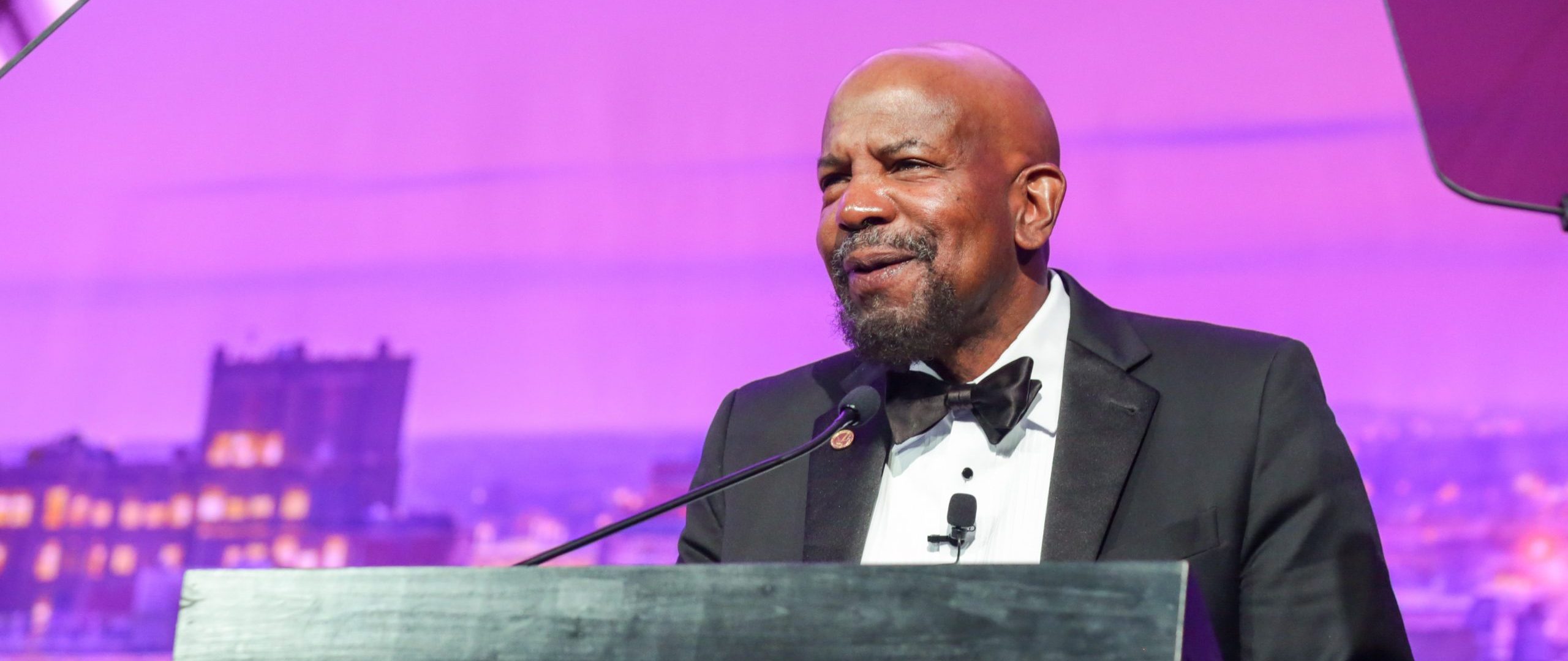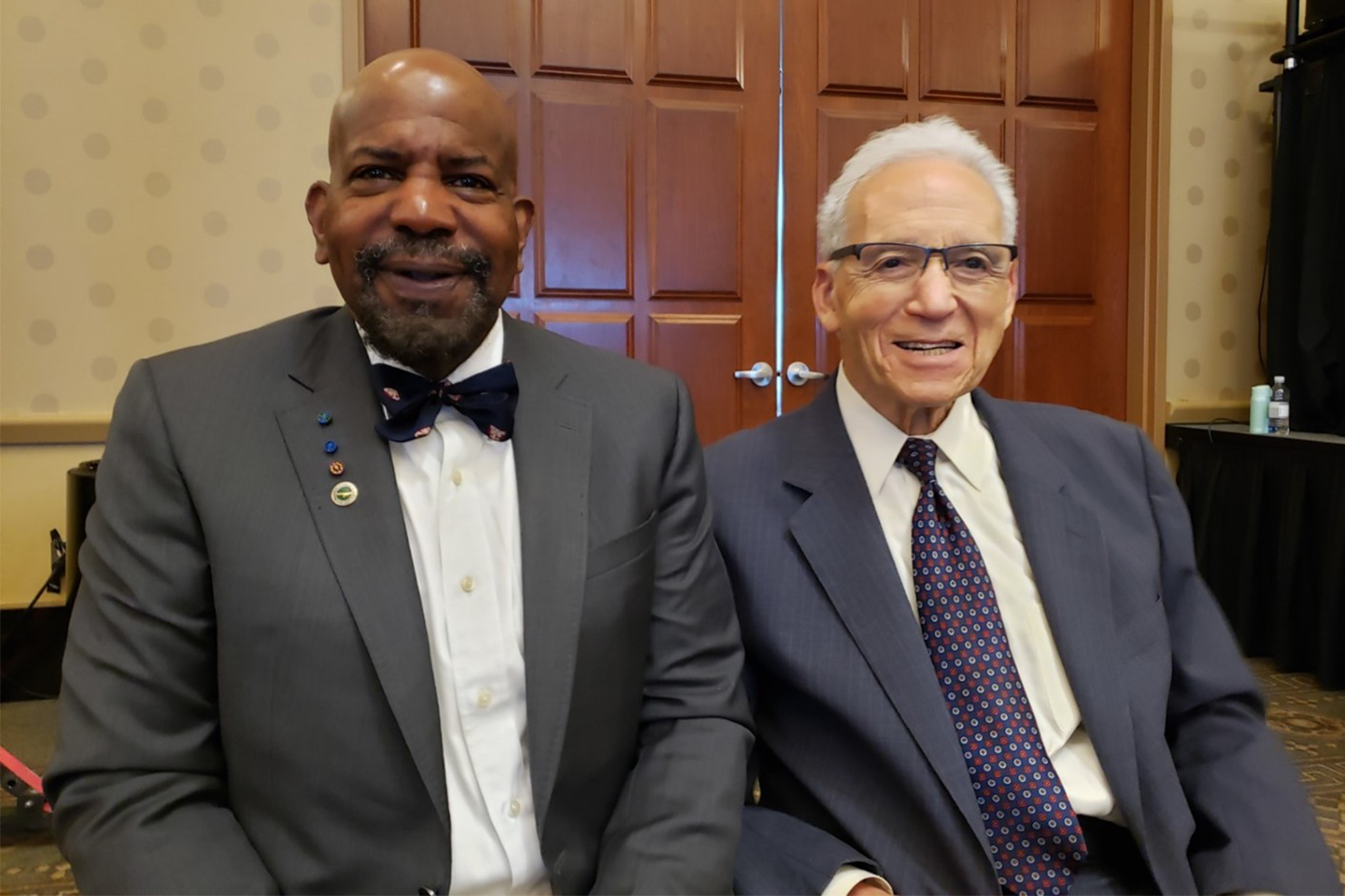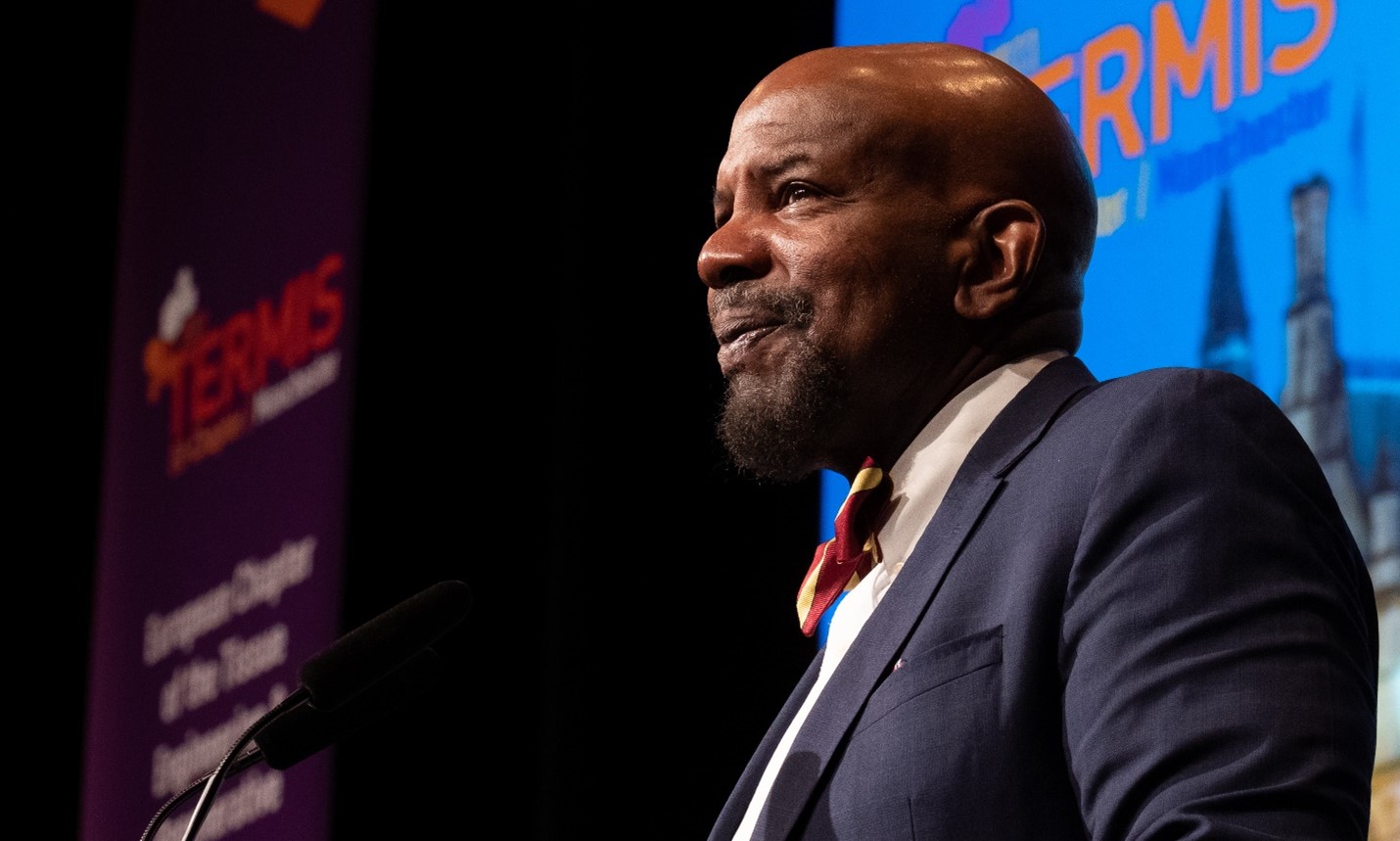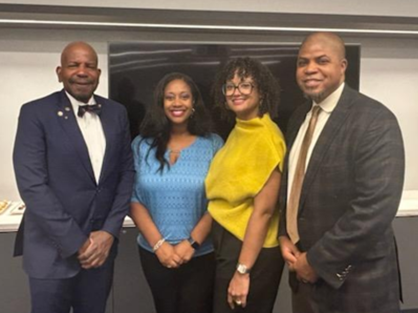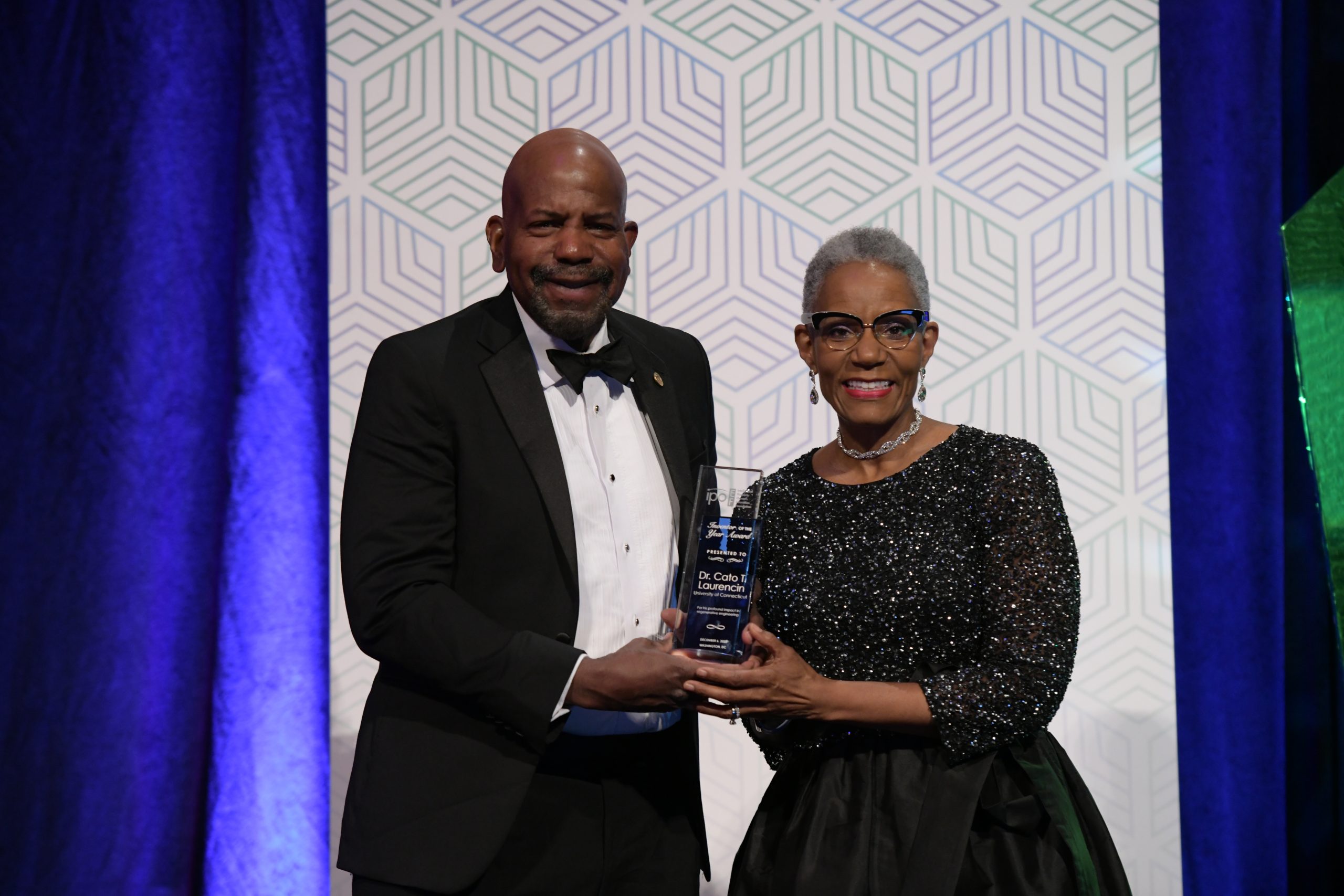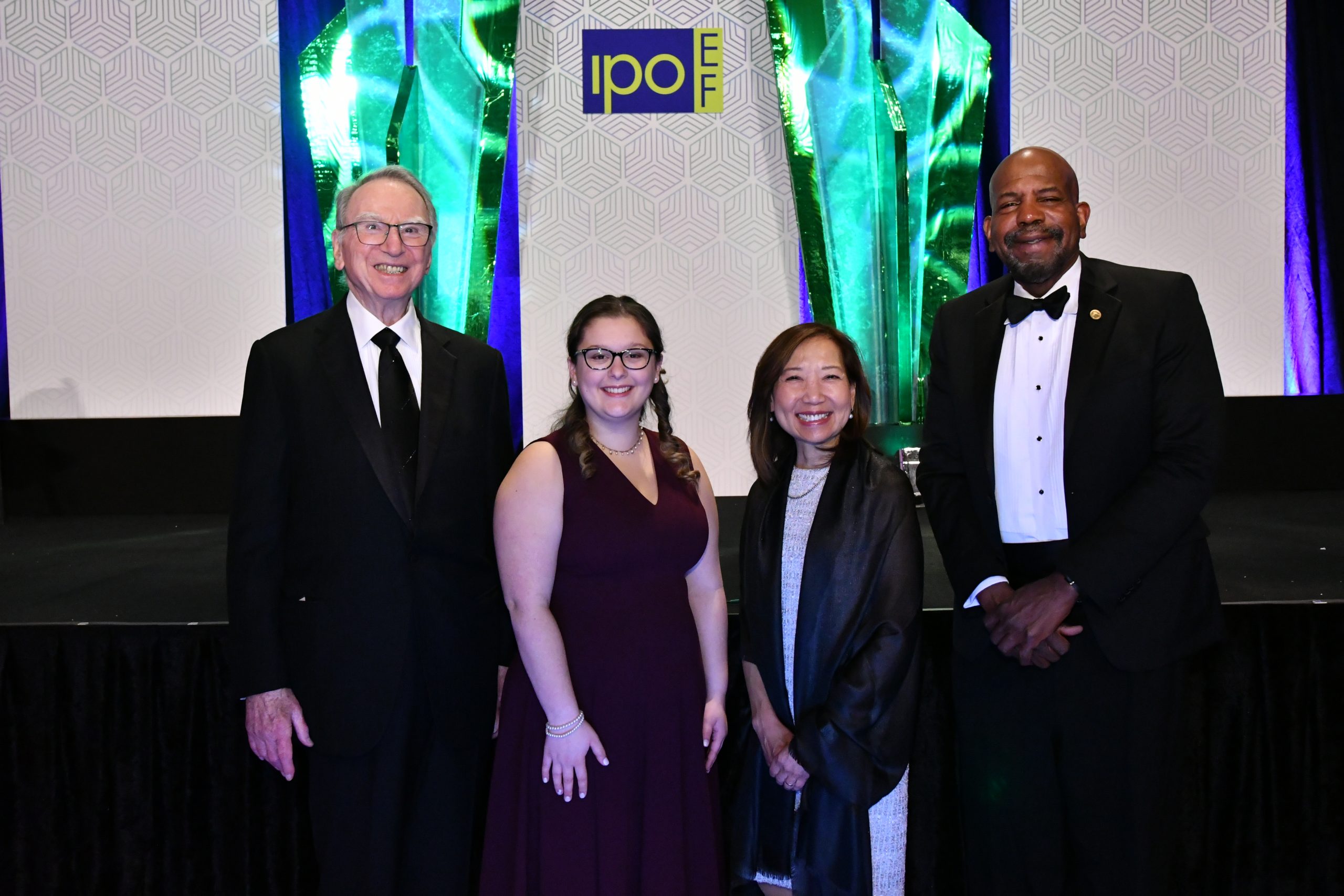On May 19, 2024, University Professor Cato T. Laurencin, M.D., Ph.D., received an honorary Doctor of Science degree from the New York Institute of Technology. As an honored guest of the 63rd commencement ceremony, Laurencin was also a guest speaker at the College of Osteopathic Medicine. Dr. William Blazey, Associate Dean of Academic Affairs announced Dr. Cato T. Laurencin as the keynote speaker, highlighting Laurencin’s achievements. As keynote speaker, Laurencin gave a heartwarming speech for graduates to honor the people in their lives and thank them on raising them so well. Sharing his advice; enjoy yourselves and to remember every day is a gift.
News
Royal Academy of Engineering Fellows Meet at World Biomaterials Congress
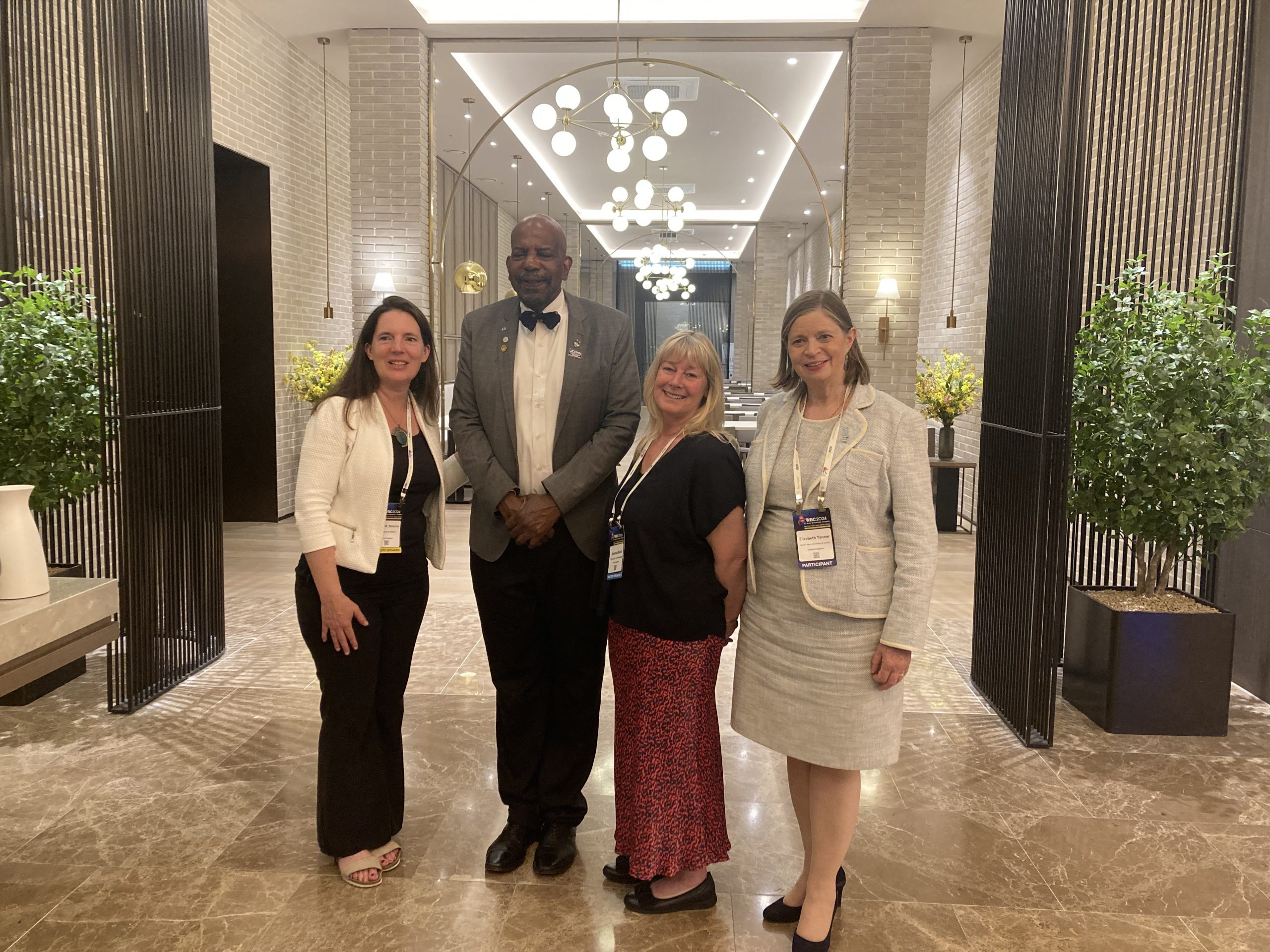
At the World Biomaterials Congress, Cato T. Laurencin, M.D., Ph.D., united with Royal Academy of Engineering fellows Serena Best, Ph.D., Dame Molly Stevens, Ph.D., and Dame Elizabeth Tanner, D.Phil., Ph.D., while in Daegu, South Korea. An accomplished group, these four have made immense contributions to the field of engineering in Biomedical Materials and Engineering.
The Royal Academy of Engineering, originally called the Fellowship of Engineering, was founded in 1976 and has since then championed excellence in all fields of engineering and honoring the most distinguished engineers within the United Kingdom and around the world.
Laurencin Meet and Greet at the World Biomaterials Congress
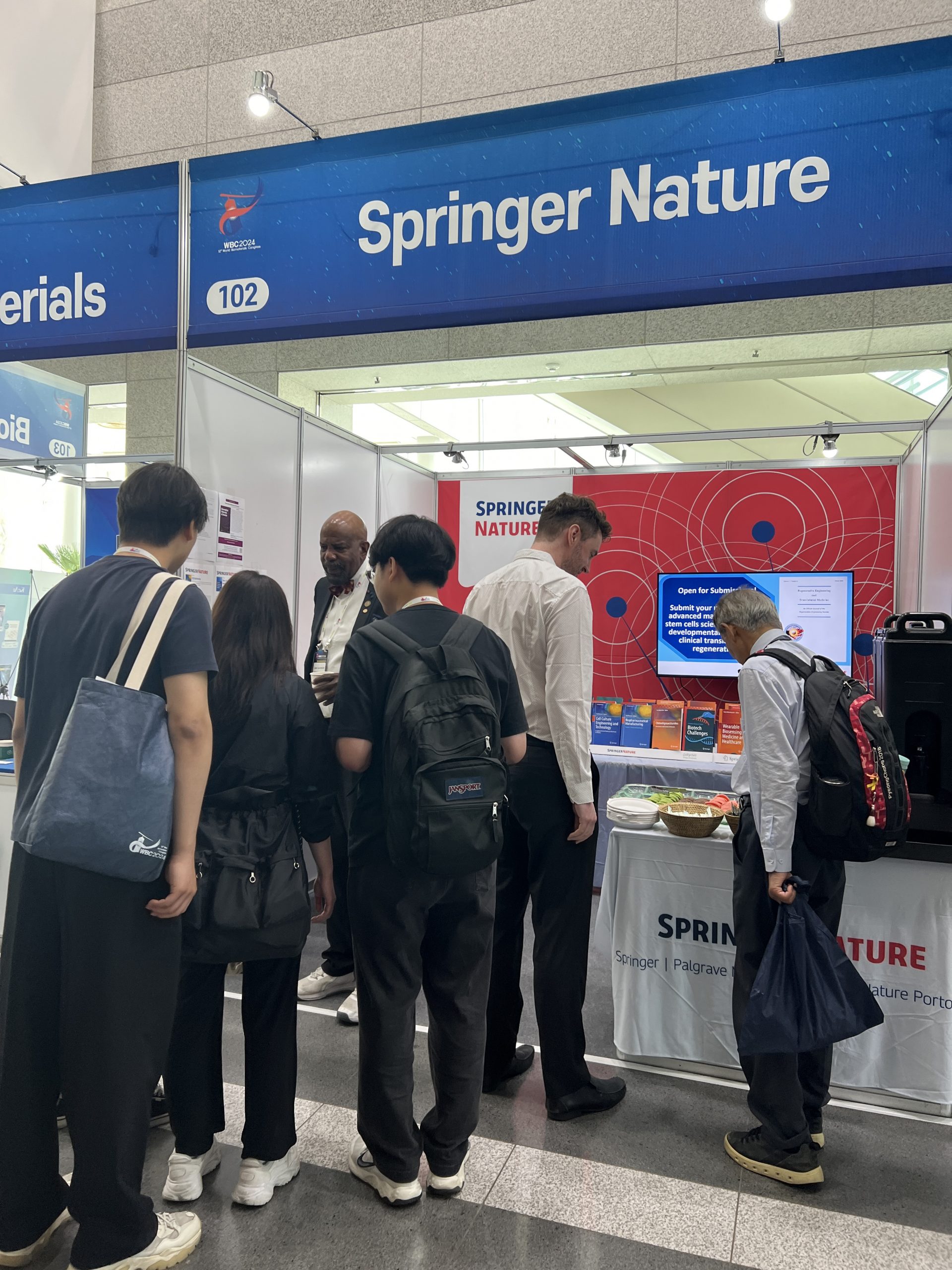 At the World Biomaterials Congress in Daegu, South Korea, Springer Nature hosted their own exhibition booth to promote various journals and publications, including Regenerative Engineering and Translational Medicine, where Cato T. Laurencin, M.D., Ph.D., is editor-in-chief.
At the World Biomaterials Congress in Daegu, South Korea, Springer Nature hosted their own exhibition booth to promote various journals and publications, including Regenerative Engineering and Translational Medicine, where Cato T. Laurencin, M.D., Ph.D., is editor-in-chief.
As a promotional event for the RETM Journal, Springer Nature held a Meet and Greet reception where guests were able to speak with Dr. Laurencin and ask questions about his work.
ScHOLA2RS House Presents Cato T. Laurencin, M.D., Ph.D. Awards to Three Extraordinary Undergraduate Students
UConn’s ScHOLA2RS House is a Learning Community program dedicated to support the scholastic efforts of male students who identify as African American/Black. At its end of year ceremonies, three bright students were awarded the Cato T. Laurencin Award, which are given to those graduating with the highest GPAs. Funded by the Helen I. Moorehead-Laurencin Family Foundation, the award is presented by UConn Foundation and is endowed through generous gifts from faculty and staff at UConn. The award-winning students this year were Isaiah Harvey, Samuel Agyei, and Jakobi Samuels.
American Chemical Society Holds Symposium in Honor of University Professor Cato T. Laurencin
On March 19, the American Chemical Society held the Kathryn C. Hach Award for Entrepreneurial Success Symposium in honor of Dr. Cato T. Laurencin, who is the University Professor, Albert and Wilda Van Dusen Distinguished Professor of Orthopaedic Surgery, and chief executive officer of The Cato T. Laurencin Institute for Regenerative Engineering at the University of Connecticut. Read more on UConn Today.
The Plastics Hall of Fame to Induct Dr. Cato T. Laurencin
University Professor Cato T. Laurencin, chief executive officer of The Cato T. Laurencin Institute for Regenerative Engineering and the Albert and Wilda Van Dusen Distinguished Endowed Professor of Orthopaedic Surgery at the University of Connecticut, will be inducted into The Plastics Hall of Fame.
The Plastics Hall of Fame is the ultimate recognition for a lifetime body of work of an individual whose dedication and exceptional achievements have contributed to the growth and prominence of the industry on a global scale. The induction ceremony will take place May 5 in Orlando, Florida.
Read more on UConn Today.
Dr. Cato T. Laurencin to Receive Augustus White Founders Award
The J. Robert Gladden Orthopaedic Society (JRGOS) has selected Cato T. Laurencin, M.D., Ph.D., to be the first recipient of the Augustus A. White III Founders Award. The award ceremony will be held during the 2024 American Academy of Orthopaedic Surgeons meeting in San Francisco, CA. The JRGOS Augustus White Founders Award “recognizes the recipient’s exceptional contributions to advancing culturally sensitive musculoskeletal care while promoting diversity within Orthopaedics and exemplifying an unswerving commitment to excellence in the field.”
Professor Cato T. Laurencin Receives Compleat McGovern Award
The John P. McGovern Compleat Physician Award will be presented to Dr. Cato T. Laurencin, chief executive officer of The Cato T. Laurencin Institute for Regenerative Engineering at the University of Connecticut, for his dedication and contributions broadly to the medical field. Read more on UConn Today.
Dr. Cato T. Laurencin Delivers Keynote Speech at UVA Conference
On November 17, 2023, Cato T. Laurencin, MD, PhD, was the invited keynote speaker at the 2023 How When & Why of DEI provided by the University of Virgina School of Medicine and School of Nursing. Read more on UConn Today.
Dr. Cato T. Laurencin at the IPOEF Awards Celebration
On December 6th, Dr. Cato T. Laurencin, the University Professor and Albert and Wilda Van Dusen Distinguished Endowed Professor at the University of Connecticut, was named Inventor of the Year for 2023 at the Intellectual Property Owners Education Foundation (IPOEF) Awards Celebration. Dr. Laurencin is being honored for his pioneering contributions in the field of Regenerative Engineering which have led to the use of polymeric biomaterials in treating musculoskeletal conditions. Known as a leader in his field, Dr. Laurencin has also previously received the Priestly Medal for Chemistry, the Von Hippel Award for Materials Science, and the Jay Bailey Award for Biological Engineering.
The IPOEF Awards Celebration recognizes accomplishments in the fields of intellectual property (IP), innovation, and creativity and brings together IP professionals, judges, government officials, representatives from Capitol Hill, and attendees from companies and law firms around the world. The celebration honored individuals among four categories:
- Inventor of the Year: Dr. Cato T. Laurencin, University Professor, University of Connecticut
The Inventor of the Year Award recognizes the world’s most outstanding recent inventors and how they benefit the nation’s economy and quality of life. Dr. Laurencin is being honored as the 50th Inventor of the Year for his pioneering contributions in the field of Regenerative Engineering. Dr. Laurencin has distinguished himself from the current strategies to address musculoskeletal conditions by establishing the field of regenerative engineering to develop ways for people to regrow injured tissue and bone. He says “I am honored to receive this award. The field of Regenerative Engineering I founded has already produced impressive new technologies that have directly benefited people. Our work continues in complex tissue regeneration with the hope of creating even more breakthrough discoveries.” - Executive of the Year: Sandra Leung, Executive Vice President and General Counsel, Bristol Myers Squibb
The Executive of the Year Award is given to an individual for their commitment to the creation, promotion, and protection of intellectual property. Newly appointed CEO Dr. Christopher Boerner commented on Ms. Leung receiving the award. “What really distinguishes Sandy is her focus on integrity, being a true partner to the business and her dedication to our mission at BMS to discover, develop and deliver innovative medicines that help patients prevail over serious diseases. This award underscores the critical role of IP in ensuring that BMS and the biopharmaceutical industry can continue to bring new medicines to patients. Sandy knows that protecting IP is critical to BMS and our industry overall, and she demonstrates this with her actions.” - IP Champion: Irwin Jacobs, Cofounder and CEO Emeritus, Qualcomm
The IP Champion Award recognizes extraordinary leadership in advocating for the value of IP to stimulate the progress of innovation. Dr. Jacobs founded Qualcomm in 1985 with six others and developed the technology underlying the rapid worldwide expansion of cell phone usage for voice and internet access. As CEO through 2005 and Chairman through 2009, he led the growth from startup to Fortune 500 Company, now with over 50,000 employees worldwide and more than 140,000 issued and pending patents. Dr. Jacobs noted that Qualcomm’s growth was due to the ability to innovate, patent their innovations and license them. - Inspiration Award: Audrey Larson, Student, University of Connecticut
The Inspiration Award recognizes individuals who have made an impact by promoting and championing IP rights for and on behalf of members of underrepresented communities. Audrey is only a junior at UConn and received two patents before she graduated high school. She says that she is inspired by frustration or anxieties that she has about different world issues and invention and innovation has been a positive way for her to channel those feelings into action. One of her many accomplishments includes launching an online inventors club to encourage students, particularly those isolated and underrepresented in their communities, to learn about innovation and propel their IP efforts forward.
